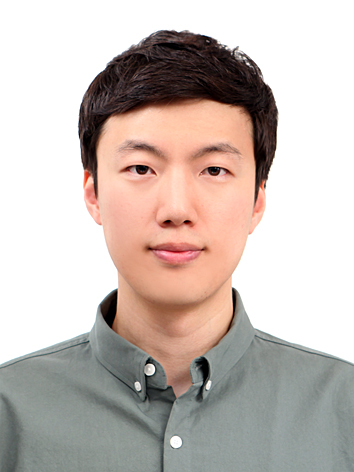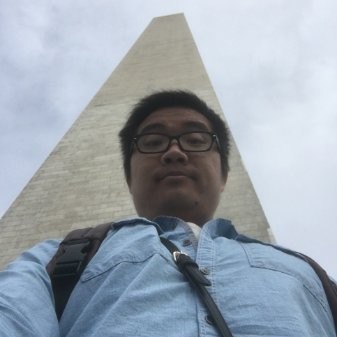PEOPLE

Prof. Ba-Ngu Vo
Leader
Ba-Ngu received the bachelor’s degree in mathematics and electrical engineering (with first class honors) in 1994, and the Ph.D. degree in 1997. He is a Fellow of the IEEE, and co-recipient of the 2010 Eureka Prize for "Outstanding Science in support of Defence or National Security". Ba-Ngu is best known as a pioneer in the stochastic geometric approach to multiobject system. His research interests include signal processing, systems theory, and stochastic geometry, with emphasis on target tracking, sensor management, computer vision, and situational awareness. He is best known as a pioneer in the stochastic geometric approach to multiobject system. The underlying theme of his research is system/phenomena subject to uncertainty and statistical variability. The aim is to develop advanced methodologies for analysis, modeling and (optimal) design of systems as well as applying these results to real-world problems.

Prof. Ba-Tuong Vo
Researcher
Ba-Tuong received the B.Sc. degree in applied mathematics and the B.E. degree in electrical and electronic engineering (with first-class honors) in 2004 and the Ph.D. degree in engineering (with Distinction) in 2008 from the University of Western Australia. Ba-Tuong is co-recipient of the 2010 Eureka Prize for "Outstanding Science in support of Defence or National Security", and a recipient of an ARC future fellowship. His main interest is in statistical signal processing, specifically Bayesian methods and random sets, with applications to multiple object tracking. He has related interests in Monte Carlo methods, data fusion and stochastic control. He is best known as one of the first adopters of the random finite set (RFS) or finite set statistics (FISST) approach to multi-sensor multi-target tracking.

Prof. Yue Rong
Researcher
Yue received the B.E. degree from Shanghai Jiao Tong University, Shanghai, China, the M.Sc. degree from the University of Duisburg-Essen, Duisburg, Germany, and the Ph.D. degree (summa cum laude) from Darmstadt University of Technology, Darmstadt, Germany, all in Electrical Engineering, in 1999, 2002, and 2005, respectively. His research interests include signal processing for communications, wireless communications, underwater acoustic communications, wireless networks, underwater optical wireless communications, applications of linear algebra and optimization methods, and statistical and array signal processing. Yue received the 2010 Young Researcher of the Year Award of the Faculty of Science and Engineering at Curtin University. He is a Senior Area Editor of IEEE Transactions on Signal Processing, and served as an Editor of IEEE Transactions on Signal Processing, IEEE Wireless Communications Letters, a Guest Editor of the IEEE JSAC special issue on Theories and Methods for Advanced Wireless Relays.

Dr. Changbeom Shim
Researcher
Changbeom Shim is currently a postdoctoral research associate in the School of Electrical Engineering, Computing and Mathematical Sciences (EECMS) at Curtin University, Australia. Prior to joining the Intelligent Sensing and Perception (ISP) Group, he served as a lecturer at Korea University in 2018 and was invited as a visiting researcher to RMIT University in Melbourne, Australia, in 2019. He received B.E. in Electronics and Information Engineering and Ph.D. in Computer Science and Engineering, from Korea University, South Korea, in 2014 and 2019, respectively.

Dr. Peng Chen
Researcher
10 years experience in algorithm and system design. A strong background in software developing, multi-language programming, technical report writing and presenting. Skilled in PHP, LabVIEW, LaTeX, HTML, and Matlab. Strong research professional with a Doctor of Philosophy (Ph.D.) focused in Signal and Information Processing from Beijing University of Posts and Telecommunications. High self-motivated individual equipped with modern time management skills.

Dr. Hoa Van Nguyen
Researcher
Hoa Van Nguyen received his Bachelor degree in electrical engineering from Portland State University, Oregon, U.S.A in 2012, and the PhD degree in computer science from The University of Adelaide, in 2020. He is currently a Lecturer at the School of Electrical Engineering, Computing and Mathematical Sciences, Curtin University. His research interests include signal processing, robotics, multi-object tracking, and multi-sensor control.
Khai Duc Minh Tran
Software Engineer
Khai Duc Minh Tran holds a Master’s degree in Predictive Analytics from Curtin University and is a Microsoft Certified Professional. He has over 16 years of experience in Enterprise Resource Planning (ERP) implementation, leading and delivering end-to-end business transformation projects across diverse industries. His current interests focus on applying Deep Learning and Machine Learning to solve real-world problems and drive data-informed decision-making.

Dr. Tran Thien Dat Nguyen
Researcher
Tran Thien Dat Nguyen received his B.E. degree in electrical power engineering in 2018, and his PhD degree in electrical and computer engineering in 2022. He is currently a post-doctoral researcher at the Intelligent Sensing and Perception Laboratory (ISPL), Curtin University. His research interests include multi-object systems, Bayesian filtering and random sets.